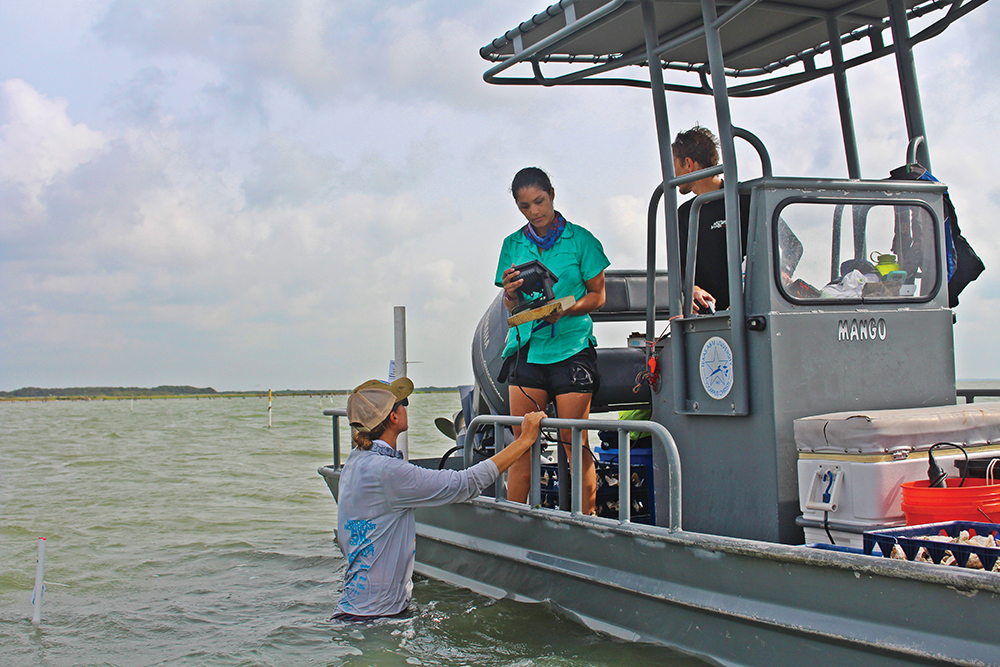86th Legislative Session Wrap-up

The 86th legislative session ended Memorial Day weekend with several fishery-related bills sent to Governor Abbott’s desk for his signature. CCA Texas once again worked closely with Texas Parks and Wildlife Department (TPWD), legislators, and likeminded people and organizations to ensure a successful legislative session. Oysters were at the forefront once again, and this session brought into place an Oyster Mariculture bill, closed loop holes in the commercial oyster fishing business, and stiffened penalties for the illegal sales of aquatic products.
Oyster Mariculture
House Bill 1300 passed with broad support from numerous stakeholders including CCA Texas. This bill requires the Texas Parks and Wildlife Commission to establish an oyster mariculture (aquaculture) program by September 30, 2020. CCA Texas looks forward to working with Texas Parks and Wildlife to develop a cultivated oyster mariculture program that addresses concerns of the angling community, redefines the Texas half-shell market, and puts more oysters in our waters to benefit the coastal ecosystem.
Representative Todd Hunter is hosting a Texas Oyster Aquaculture Summit – A New Industry For Texas on Wednesday, July 10 from 8am-3pm at Texas A&M University – Corpus Christi in the Anchor Ballroom. Admission is free but registration is required. Do a search on Eventbrite.com for Texas Oyster Aquaculture Summit and complete the registration form if you are interested in attending. Please reach out to Shane Bonnot (sbonnot@ccatexas.org) if you have any questions regarding this piece of legislation.
Commercial Oyster Fishing Loopholes
Each year the commercial oyster fishery opens on November 1st and closes on April 30th the following year – effectively a six-month season. Texas Parks and Wildlife Department (TPWD) continually monitors public oyster reefs throughout the year by conducting random bi-monthly sampling in our bay systems. They will also conduct additional sampling before and during oyster season if feedback from law enforcement or the oyster industry triggers them to do so. Using metrics that TPWD has established based upon the abundance of oysters and the percentage of their sample under 3” (legal size), they may close a bay system to commercial harvest. Once a bay system is closed it will take 1-2 years for the reefs to recover and then it can be re-opened by TPWD. That time table is highly dependent on how hard that bay system was fished and environmental conditions. It is important that the reefs are given the proper time to recover for a sustainable oyster fishery.
Unfortunately, there are bad actors within the fishery who ignore the closures and continue to harvest oysters from closed waters, often targeting the undersized oysters remaining on the reefs. While there is an enhanced penalty structure for undersize oyster violations, there is no true deterrent for fishing in closed waters other than a Class C misdemeanor. That will soon change thanks to Representative Geanie Morrison (R-30) and Senator Juan “Chuy” Hinojosa (D-30), sponsors of passed legislation (House Bill 2321 and Senate Bill 671) that cleans up language in current statute regarding harvesting undersize oysters and increases penalties for commercial oyster fishing in closed waters. In the next commercial oyster season, persons committing harvest offenses can expect the following:
• Class A misdemeanor for harvesting at night and either harvesting in closed waters or restricted waters during same criminal episode.
• Class B misdemeanor for harvesting undersized oysters or harvesting in closed waters if defendant was previously convicted at least twice for violation regarding undersize oysters (less than 30% of cargo) and/or previously convicted for harvesting in closed waters.
• Class B misdemeanor for second violation of possession of cargo of oysters greater than 30% undersize oysters.
• Class A misdemeanor with attendant license suspension for third violation of possession of cargo greater than 30% undersized or fishing in closed waters.
• State-level felony for harvesting at night and either harvesting in closed waters or restricted waters if the defendant has been previously convicted once before within five years for the same crime.
Unlawful Sale of Aquatic Products
No doubt the “back door” sale of aquatic products to restaurants and fish markets has increased over the years as fish, such as red snapper, fetch a premium price in the market. The Texas legislature passed House Bill 1828 to address this issue, increasing the penalty for the illegal sale of aquatic products. The normal penalty for a violation of this nature is a Class C misdemeanor which carries a fine of no greater than $500. This bill increases the penalty to a Class B misdemeanor, Class A misdemeanor or State Jail Felony with an escalating fine structure for increased poundage of illegal aquatic products.
CCA Texas / Building Conservation Trust Project Updates
By John Blaha
CCA Texas’s Habitat Today for Fish Tomorrow and Building Conservation Trust (BCT) continue to make strides along the Texas coast in habitat creation and restoration, and providing funding for critical habitat research. To date in 2019, CCA Texas and BCT have funded $275,000 for four projects and have three more pending for potentially an additional $560,000. Funded projects to date included:
- $50,000 to Galveston Bay Foundation for a marsh restoration effort in Dollar Bay.
- $50,000 to Galveston Bay Foundation for marsh restoration efforts along the shorelines of Galveston Bay Foundation’s new Headquarters. This project will create a living shoreline and project excellent outreach opportunities for surrounding schools.
- $75,000 to Harte Research Institute and Dr. Jennifer Beseres Pollack’s staff to continue their research on the serpulid reef structures of Upper Laguna Madre and Baffin Bay.
- $100,000 funded to Texas Parks and Wildlife Department’s coastal fisheries in Sabine Pass to restore Sabine Lake Big Reef. This funding is in addition to $100,000 previously funded by CCA Texas / BCT in 2018, and $500,000 that TPWD has secured from Hurricane Harvey Relief Funds.
